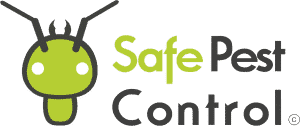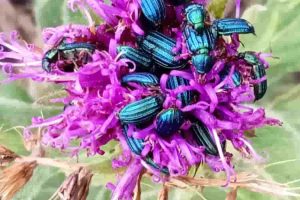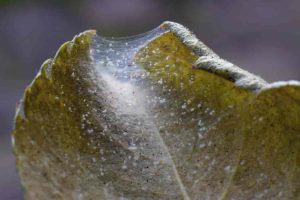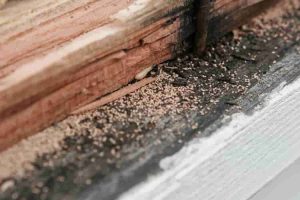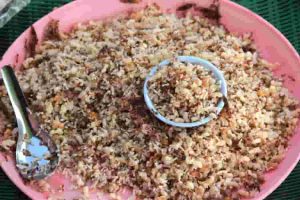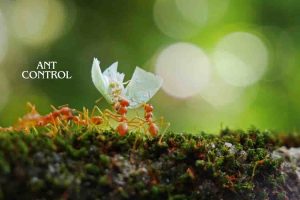Pest control in organic farms and gardens can be a challenging yet rewarding task. Using organic methods not only protects our plants but also preserves the environment. By focusing on natural and safe alternatives, we can effectively manage pests without resorting to harmful chemicals. This approach supports the health of beneficial insects, such as ladybugs and bees, which are crucial for pollination and maintaining ecological balance.
One of the most effective methods is introducing beneficial insects into our gardens. These natural predators help keep pest populations in check. Additionally, setting up physical barriers like row covers or insect netting can protect our crops from common pests like caterpillars and beetles. Regularly inspecting our plants and handpicking pests is another straightforward method that can significantly reduce pest pressure.
Cover crops and mulches play a crucial role in healthy organic gardening. Keeping the soil covered helps prevent weed growth and soil erosion, creating a robust environment for plants to thrive. Simple home remedies, such as a spray made of washing-up liquid and water, can also be quite effective in controlling pests without posing a risk to our garden’s ecosystem.
Understanding Organic Pest Control
Organic pest control involves maintaining a balanced ecosystem to manage pests naturally. We can avoid harmful chemicals that damage the environment and rely on nature’s methods to keep our gardens healthy.
Role of Beneficial Insects and Predators
Beneficial insects and predators play a key role in organic pest control. For example, ladybugs and lacewings feed on aphids, which helps reduce the aphid population in our gardens. Wasps and birds also act as predators, targeting caterpillars and beetles.
We can attract these helpful creatures by planting diverse crops and providing habitats that encourage their presence. Flowers like marigolds and sunflowers attract hoverflies, which prey on many pests.
Maintaining a garden with a variety of plants supports a balanced ecosystem. This approach not only manages pest populations but also promotes pollination by attracting bees and other pollinators.
Impact of Chemicals on the Environment
Using synthetic pesticides can have severe impacts on our environment. Chemicals often kill not only the targeted pests but also beneficial insects like bees and ladybugs. This can lead to an imbalance in the ecosystem.
When chemicals enter the soil and water, they can harm wildlife and even affect human health. Organic methods avoid these problems by using natural solutions. For instance, garlic or chili pepper sprays can deter pests without harming other creatures.
By choosing organic pest control, we help preserve biodiversity and keep our gardens safe for all forms of life. This ensures that we protect our environment while maintaining healthy and productive gardens.
Cultural and Physical Pest Control Strategies
In organic farming and gardening, using cultural and physical pest control methods is crucial. These strategies create an unfavorable environment for pests and help manage their populations without relying on synthetic chemicals.
Companion Planting and Crop Rotation
Companion planting involves growing different crops or plants together to enhance growth and repel pests. For example, planting marigolds with tomatoes can deter nematodes, while basil can repel mosquitoes and flies. This method also attracts beneficial bugs like ladybugs and parasitic wasps that feed on garden pests.
Crop rotation is another effective strategy. By changing the types of crops grown in a particular area each season, we can disrupt the life cycle of pests that rely on specific crops. For example, rotating legumes with brassicas can prevent soil-borne diseases and reduce pest buildup.
Benefits:
- Reduces pest establishment.
- Enhances soil health.
- Supports beneficial insects.
Implementing these practices requires planning but can greatly reduce the need for chemical pest control.
Use of Barriers and Traps
Physical barriers, such as row covers, netting, and floating row covers, protect plants from pests. Row covers create a physical barrier that prevents insects from reaching crops. Netting is useful for keeping larger pests like birds and rodents away from fruits and vegetables.
Traps are also a key part of physical pest control. Sticky traps can capture flying insects such as aphids and whiteflies. Pheromone traps attract and trap specific pests by mimicking their natural sex pheromones.
Common Barriers and Traps:
- Row Covers: Protects seedlings and young plants.
- Netting: Shields fruit trees and berry bushes.
- Sticky Traps: Captures small flying insects.
- Pheromone Traps: Targets specific pest species.
Using a combination of these methods helps us manage pests effectively and sustainably.
Organic Pesticides and Biological Controls
In organic farming, using organic pesticides and biological controls helps us tackle pest problems while maintaining ecological balance. By combining these methods, we protect crops without harming the environment.
Natural and Organic Pesticide Options
Organic pesticides provide an effective way to manage pests in our gardens and farms. Some commonly used options include neem oil, pyrethrin, and spinosad.
Neem oil, derived from the neem tree, is effective against pests like aphids, whiteflies, and mealybugs. It works by disrupting the insects’ hormonal systems, preventing them from feeding and reproducing.
Pyrethrin, made from chrysanthemum flowers, targets a wide range of pests, including caterpillars, cutworms, and cucumber beetles. It acts quickly, paralyzing and killing the insects upon contact.
Spinosad is another effective organic pesticide, especially against borers and loopers. Derived from soil bacteria, it causes the insects to stop feeding and eventually die.
Other natural options like diatomaceous earth (fossilized algae) can physically damage pests, while sulfur helps control fungal diseases and some insects. Using these organic pesticides helps us manage pest populations while minimizing environmental impact.
Integrating Biological Controls into Gardening
Biological controls are a vital part of managing pests organically. They involve using natural predators or parasites to keep pest populations under control.
Nematodes are microscopic worms that target soil-borne pests like grubs and cutworms. They enter the pests and release bacteria that kill them from the inside.
Parasitic wasps lay their eggs inside pests like hornworms and squash vine borers. When the eggs hatch, the larvae consume the host insect, thus controlling the pest population.
Pheromone traps can be used to lure and capture adult insects, reducing their numbers before they can reproduce. These traps are especially useful for controlling insects like cucumber beetles.
Combining these biological controls with integrated pest management (IPM) strategies ensures that we can effectively protect our crops while supporting ecosystem health and sustainability. By integrating these methods, we maintain productive and healthy gardens and farms.
Maintenance and Monitoring for Organic Gardening
Effective maintenance and regular monitoring are crucial to a thriving organic garden. Building healthy soil and staying vigilant can help prevent many pest problems. Regular harvesting and garden cleanup keep diseases and pests in check.
Building Healthy Soil and Plant Vigilance
Healthy soil is the foundation of a successful organic garden. We should regularly aerate our garden beds with tools like garden forks to prevent soil compaction and maintain good structure. Covering bare soil with mulch or a living ground cover prevents soil erosion and deters weeds. This practice supports strong plant roots and fosters a rich ecosystem of beneficial microorganisms.
We must be vigilant about pests such as tomato hornworms, cabbage worms, corn earworms, and snails. Keeping a watchful eye on our plants helps us spot problems early. Encouraging natural predators like insect-eating birds by planting a mix of trees and shrubs creates a balanced ecosystem. Additionally, planting flowers like marigolds and sweet alyssum attracts beneficial insects and aids in natural pest control.
Regular Harvesting and Garden Cleanup
Frequent harvesting can prevent the buildup of pests and diseases. During the growing season, we should routinely remove dead leaves and debris from our garden beds to minimize hiding places for pests like slugs and cabbage worms. This also helps to reduce the spread of plant diseases.
Regular cleanup includes setting up sticky traps and using natural deterrents like garlic and soapy water sprays to keep pests at bay. Using mesh netting can protect crops from insects and birds without harming pollinators. By maintaining cleanliness and order in our gardens, we support the long-term health of both our crops and the environment.
On-Time Service

5 STAR SERVICE BASED ON 100+ GOOGLE REVIEWS
PET & FAMILY FRIENDLY TREATMENT

ALL YEAR-ROUND PROTECTION
Take Back Control Now
8
REASON TO CHOOSE SAFE PEST CONTROL
- Guarantee protection all year-round
- 30 Years Collective Experience
- An impeccable reputation across Sydney's Suburbs
- Certified treatments & written Warranty On all work carried out
- Family Owned & Operated
- Rated #1 Pest Control In Sydney NSW
- No Mess, No Smell
- Family & Pet Friendly Treatments
REQUEST A QUOTE
